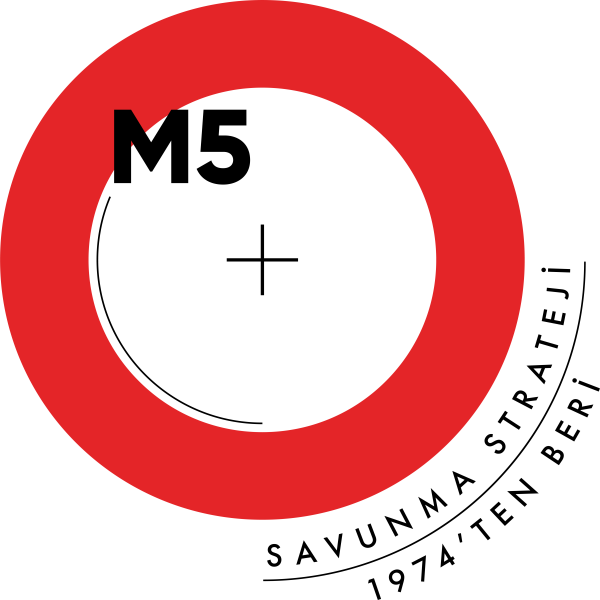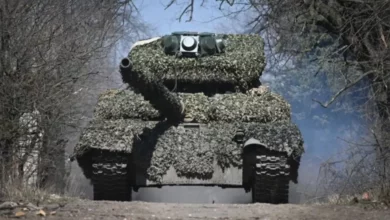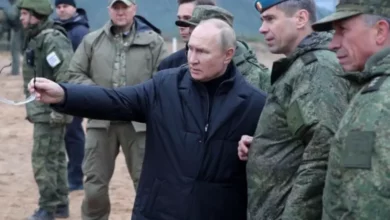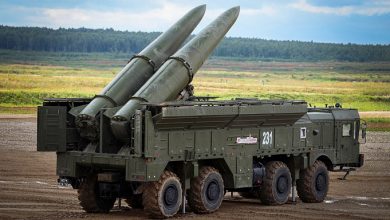How Russia could use chemical weapons in Ukraine
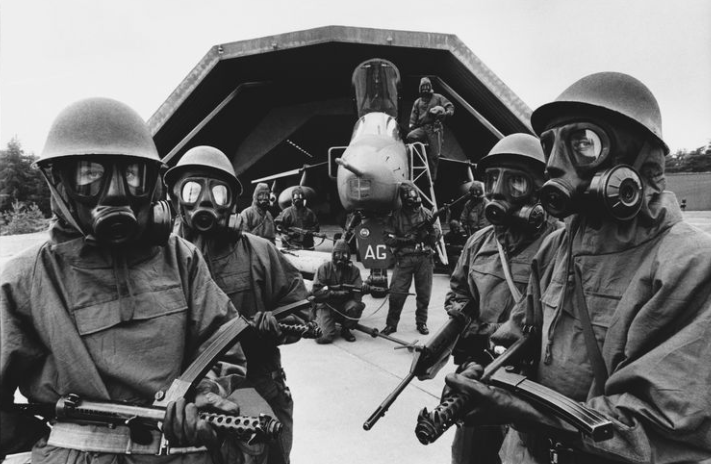
Russia says it doesn’t have chemical weapons, but a trail of assassinations across Europe says otherwise.
President Joe Biden warned that Russia would pay a “severe price” if it used chemical weapons in Ukraine.
Russia publicly declared in 2017 that it had destroyed its chemical weapons stockpile.
Despite the declaration, Putin’s Russia also used chemical weapons to assassinate political opponents in Europe.
U.S. President Joe Biden warned Russia earlier this month that it would pay a “severe price” if it used chemical weapons in its invasion of Ukraine. Although Russia claimed to have destroyed its chemical weapons stockpile back in 2017, at least three assassination attempts involving toxic munitions have been tied to Moscow since 2015. Biden did not say exactly how the U.S. would retaliate.
“I’m not going to speak about the intelligence, but Russia will pay a severe price if they use chemicals,” Biden told CNN on March 11. Ten days later, Biden hardened his stance during a Business Roundtable event, stating that Russian President Vladimir Putin’s “back is against the wall and now he’s talking about new false flags he’s setting up.” Biden went on to say that Russia’s false claims that Kyiv has biological and chemical weapons is a “clear sign he’s considering using both of those.”
The White House expressed concern earlier this month that Russia could begin using chemical or biological weapons in Ukraine—either directly or in a false-flag operation designed to legitimize the invasion.
A false-flag operation is one in which an individual, group, or even state launches an attack and then blames it on another in order to provide justification or legitimacy for subsequent actions. For example, Russia could launch a chemical attack against civilians in occupied Crimea and then blame Ukraine. Moscow could then use that to justify the invasion, arguing that Ukraine had committed a war crime and that it must topple Ukrainian President Volodymyr Zelenskyy’s government by force.
The Soviet Union maintained large stockpiles of chemical weapons during the Cold War, which Russia inherited in 1991. According to the Arms Control Association—a nonpartisan organization “promoting public understanding of and support for effective arms control policies”—Russia declared in 1993 that it owned a stockpile of 39,967 metric tons of chemical agents, including lewisite, mustard, phosgene, sarin, soman, and VX. Some of those chemical agents, such as lewisite and mustard gas, were specifically designed to injure people; others, including sarin, soman, and VX, were designed to kill. The 1925 Geneva Protocol, of which Russia is a member, bans the use of chemical weapons in war.
NATO forces, such as these Royal Air Force Regiment troops, trained extensively to counter Soviet chemical weapons. Fortunately, they were never used.
Russia says it destroyed the last of its chemical weapons in 2017, and theoretically should be chemical-free. However, at least three assassinations or attempted assassinations involving chemical agents have been linked to Putin’s Russia. In one instance, the chemical agent involved, novichok, was traced directly to Russia. In a related incident in 2004, Ukrainian presidential candidate Viktor Yushchenko was poisoned with dioxin. Yushchenko, a pro-Western candidate who advocated for Ukraine to tilt away from Russia and join NATO, later made a full recovery.
It’s unlikely that Russia possesses enough chemical weapons to make a meaningful difference on the battlefield. One possible explanation for Biden’s warning could be reports that Russian assassins planned to use Novichok to target Ukraine’s leadership, including President Zelenskyy himself. Russian forces have repeatedly tried to target Zelenskyy and failed, foiled by his security forces and his uncanny ability to be out and about in Kyiv while avoiding danger.
United Kingdom emergency services personnel in green biohazard encapsulated suits after two people fell victim to Novichok weeks after the attempted assassination of Russian dissident Sergei Skripal.
Novichok can survive “in the wild” outside of a vial for weeks. In 2018, the Novichok that targeted a Russian dissident went on to poison two innocent bystanders six weeks later, killing one of them. If assassins could contaminate locations Zelenskyy might visit with a “persistent” chemical agent, he or others could eventually be exposed. An agent like Novichok could also be used against civilians in a false-flag attack.
Warning another country not to use chemical weapons is a serious matter and points to a specific, credible threat of their use. We may never know what prompted President Biden to issue such a rare public warning, but we do know Vladimir Putin has used chemical weapons to kill in the past. If he uses them in Ukraine, we’ll find out what the “severe price” is.
